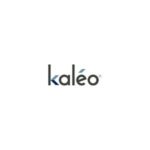 Kaléo Inc. said yesterday that its Auvi-Q epinephrine auto-injector will be available by prescription in the U.S. beginning Feb. 14th. The Richmond, Virginia-based company’s emergency allergy treatment was pulled from the market in 2015 due to manufacturing issues.
Kaléo Inc. said yesterday that its Auvi-Q epinephrine auto-injector will be available by prescription in the U.S. beginning Feb. 14th. The Richmond, Virginia-based company’s emergency allergy treatment was pulled from the market in 2015 due to manufacturing issues.
The Epipen competitor device will be sold at a list price of $4,500, but Kaléo said that as a part of its Auvi-Q AffordAbility program, patients with commercial insurance will pay nothing out-of-pocket. For patients without insurance and a household income of less than $100,000, Auvi-Q will be made available free of charge, according to the company.
Each prescription includes 2 auto-injectors and a training device. The Auvi-Q features voice instructions to guide users through the delivery process and an automatic retractable needle system, which Kaléo touts as a 1st for epinephrine auto-injectors.
“We met with patients and physicians and listened to the very real challenges in the current healthcare environment with obtaining access to affordable medicines,” president & CEO Spencer Williamson said in prepared remarks. “As a result, starting Feb. 14, for more than 200 million Americans with commercial insurance, including those with high-deductible plans, the out-of-pocket cost for Auvi-q will be $0.”
“We know how important it is that severely allergic patients have an epinephrine auto-injector that can be with them at all times and used correctly, even without training, during a panic-stricken allergic emergency,” VP of product strategy Dr. Eric Edwards added. “We are excited to make Auvi-q, an epinephrine auto-injector with innovative features, available for millions of patients living with severe, life-threatening allergies.”
Kaléo also sells a hand-held device, Evzio, that automatically delivers a pre-set dose of naloxone, the drug approved to treat an opioid overdose. Evzio has a list price of $3,750 for 2 active devices and 1 training device.
Epipen-maker Mylan (NSDQ:MYL) has been under fire since August when reports surfaced that it raised the price of its emergency allergy drug device by 500% since it acquired the product from Merck (NYSE:MRK) in 2007. Mylan has been scrutinized by lawmakers over the last several months, including at a Congressional hearing in which Bresch maintained that Mylan is committed to making the lifesaving treatment available to any patient that needs it.
The Canonsburg, Pa.-based company launched its 1st generic EpiPen emergency allergy treatment last month, just 1 day after attorney generals from 20 states filed a civil complaint against Mylan, Teva Pharmaceuticals (NYSE:TEVA), and 4 other generic drug makers, accusing them of price collusion.
The generic EpiPen will sell for $300 per two-pack, which is a 50% discount compared to the price of the brand name device.
